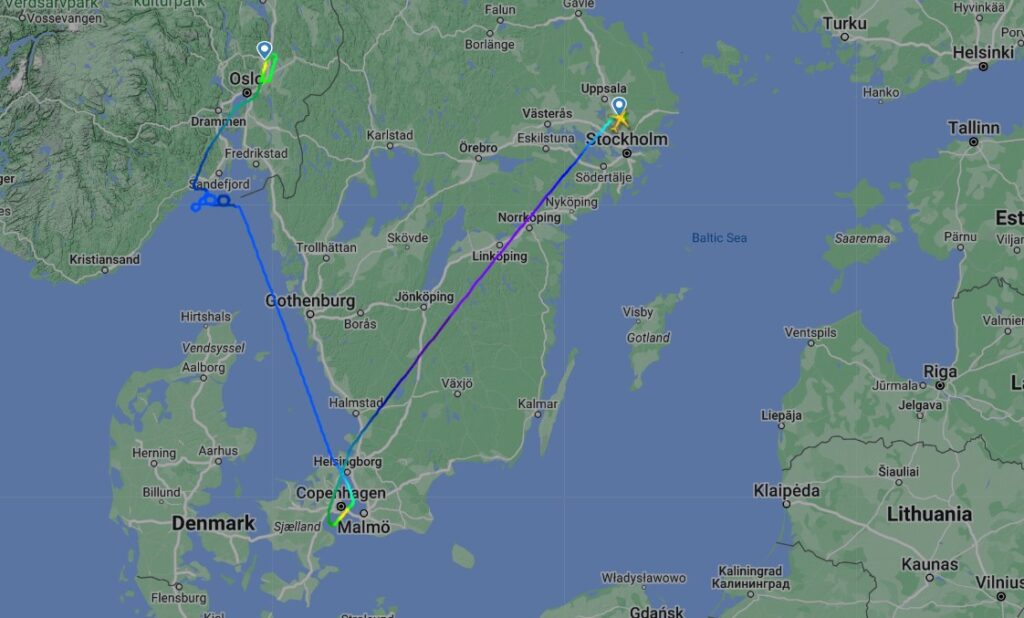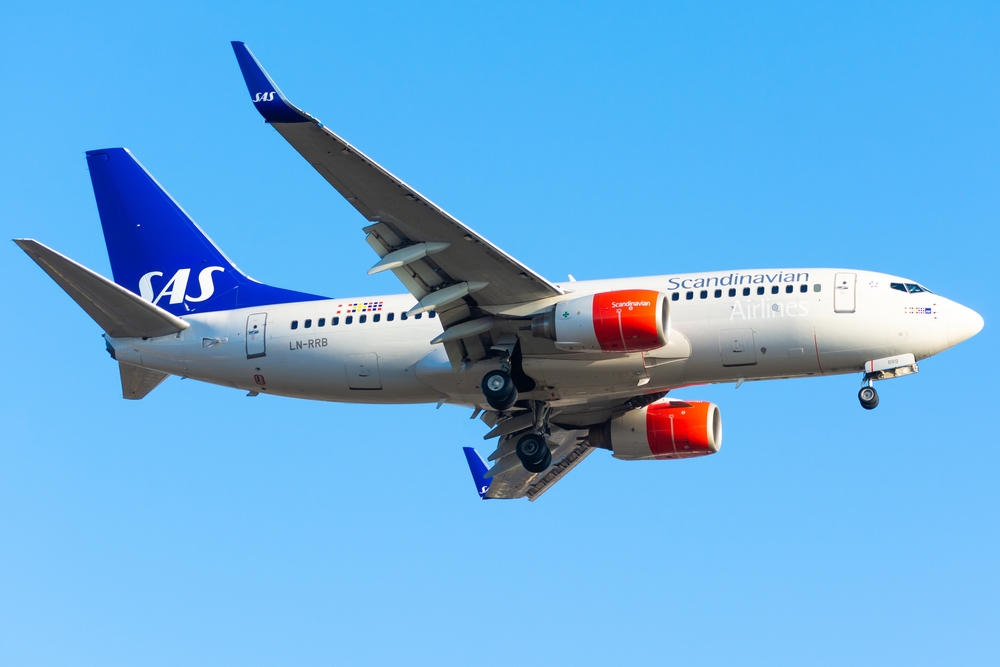Having operated the type since 1993, SAS Scandinavian Airlines (SAS) has retired its last Boeing 737 from regular passenger service.
On November 19, 2023, the airline’s last commercial passenger service using a Boeing 737 flew from Stockholm-Arlanda Airport (ARN) to Oslo-Gardermoen Airport. The flight was operated using a Boeing 737-700 registered LN-RRB and also overflew Copenhagen as part of its route.

The final flight, which was full of passengers who had bought special tickets to be part of the occasion back in September, carried the unique flight number SK737. Marking the occasion in style, as the flight proceeded towards its destination, the flight crew drew a ‘700’ symbol in the sky to represent the variant of the popular twinjet operating the final flight.
The airline has used over 100 different Boeing 737s over the course of the last 30 years. This includes a number of variants, including the -400, -500, -600, -700, and lastly, the -800.
The airline has been gradually retiring its 737 fleet for several years, having decided to replace them with products from the Airbus A320 family of narrowbodies, of which it currently has 87 in its short-haul fleet.
Alongside its Airbus A319s (four), A320s (18), A320neos (61), A321s (four), and A321LRneos (three), the airline also operates the A330-300 (eight) and the A350 (four) as the mainstays of its long-haul fleet.
On regional services, the carrier uses the ATR72-600 (six) plus the Bombardier CRJ-900 Regional Jet (23).
However, despite the final Boeing 737 commercial passenger flight, it should be noted that SAS has not entirely said goodbye to the illustrious Boeing 737 forever. It will continue to operate a sole example (registered LN-RPJ) on behalf of the Norwegian military under a contract that expires in 2024.
The retirement of the last Boeing 737 from commercial passenger services allows SAS to focus on aircraft from just one manufacturer in its mainline fleet. This fleet commonality will assist the airline as it claws its way back from bankruptcy protection resulting from spiraling costs and the drop in traffic due to the pandemic. The airline recently reported that investors had agreed to invest a $1.21 million cash injection into the airline to shore up its finances.


